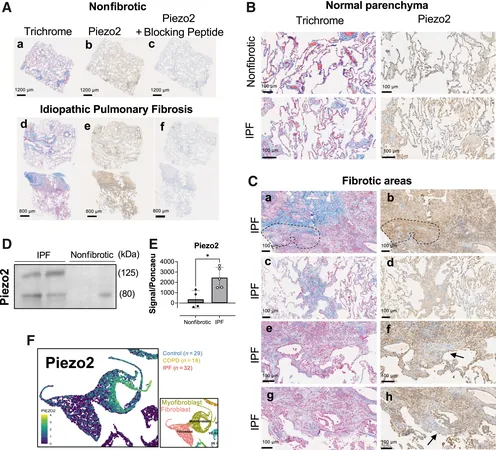
Revolutionary AI Tool Redefines Cancer Research by Unraveling Cellular Communication
2025-03-19
Author: Ming
A groundbreaking artificial intelligence (AI) tool, named NicheCompass, has been developed by a team of researchers at the Wellcome Sanger Institute, the Institute of AI for Health at Helmholtz Munich, and the University of Würzburg. This innovative AI model promises to transform cancer treatment by rapidly analyzing and interpreting millions of cells from patient samples and accurately predicting molecular changes in the tissues.
NicheCompass, a product of the Wellcome Sanger's Human Cell Atlas Initiative, creates an impressive visual database that integrates spatial genomic data on different cell types, their locations, and their communication pathways. The significance of this advancement is highlighted in a recent publication in Nature Genetics, where the researchers demonstrate the tool's capability to tailor personalized treatment strategies for diseases like cancer.
Sebastian Birk, a data scientist at Helmholtz Munich and first author of the study, emphasized the groundbreaking nature of NicheCompass, stating, “It is a significant leap in this field, leveraging the power of AI but also offering interpretability. This allows researchers and clinicians to ask questions about their data and enhance their understanding of diseases.”
At its core, NicheCompass employs deep-learning algorithms designed to discern and interpret cellular interactions. By analyzing how cells communicate within their "neighborhoods"—the complexes of cells sharing similar features—NicheCompass reveals vital information about the intricate networks that govern cellular behavior. Understanding these communications is critical, as every cell interacts with its environment and is part of larger networks.
In their initial studies, the researchers focused on lung and breast cancer tissues, uncovering interesting differences in the interactions between immune cells and tumor cells. This analysis not only shed light on unique mechanisms of cancer but also illustrated how individual tumors interact differently with the immune system. Notably, NicheCompass can distinguish between the microenvironments of different patients' cancers, which will help in predicting individual treatment responses.
Carlos Talavera-López, PhD, a co-senior author from the University of Würzburg, remarked, “Using NicheCompass, we were able to see the differences in how immune cells interact with lung cancer tumors in patients.”
What sets NicheCompass apart is its innovative deep-learning approach for analyzing cellular neighborhoods, marking it as an unparalleled tool in cancer progression research. It effectively maps the interactions within tissues, opening pathways for identifying potential drug targets and shaping clinical treatment decisions.
In addition to cancer, the NicheCompass tool has shown versatility across various spatial genomics datasets, including work with mouse brain tissue and embryonic development, where it processed over 8.4 million cells to construct detailed maps of the brain's architecture.
Given its broad applications, NicheCompass holds great promise beyond oncology. Its capacity to analyze spatial atlases of organs such as the brain and lungs positions it as an unprecedented resource for elucidating disease mechanisms at a molecular level. Moreover, incorporating patient-specific data into NicheCompass can furnish clinicians with valuable insights tailored to individual conditions, enabling more effective treatment options.
Researchers are optimistic that NicheCompass will also find utility in multi-omics studies, providing vital insights into tissue structures, immune responses, and the complex gene programs that direct cellular activities. With its potential to reshape how we understand and treat complex diseases, NicheCompass is poised to be a game-changer in medical research and patient care.


 Brasil (PT)
Brasil (PT)
 Canada (EN)
Canada (EN)
 Chile (ES)
Chile (ES)
 Česko (CS)
Česko (CS)
 대한민국 (KO)
대한민국 (KO)
 España (ES)
España (ES)
 France (FR)
France (FR)
 Hong Kong (EN)
Hong Kong (EN)
 Italia (IT)
Italia (IT)
 日本 (JA)
日本 (JA)
 Magyarország (HU)
Magyarország (HU)
 Norge (NO)
Norge (NO)
 Polska (PL)
Polska (PL)
 Schweiz (DE)
Schweiz (DE)
 Singapore (EN)
Singapore (EN)
 Sverige (SV)
Sverige (SV)
 Suomi (FI)
Suomi (FI)
 Türkiye (TR)
Türkiye (TR)
 الإمارات العربية المتحدة (AR)
الإمارات العربية المتحدة (AR)